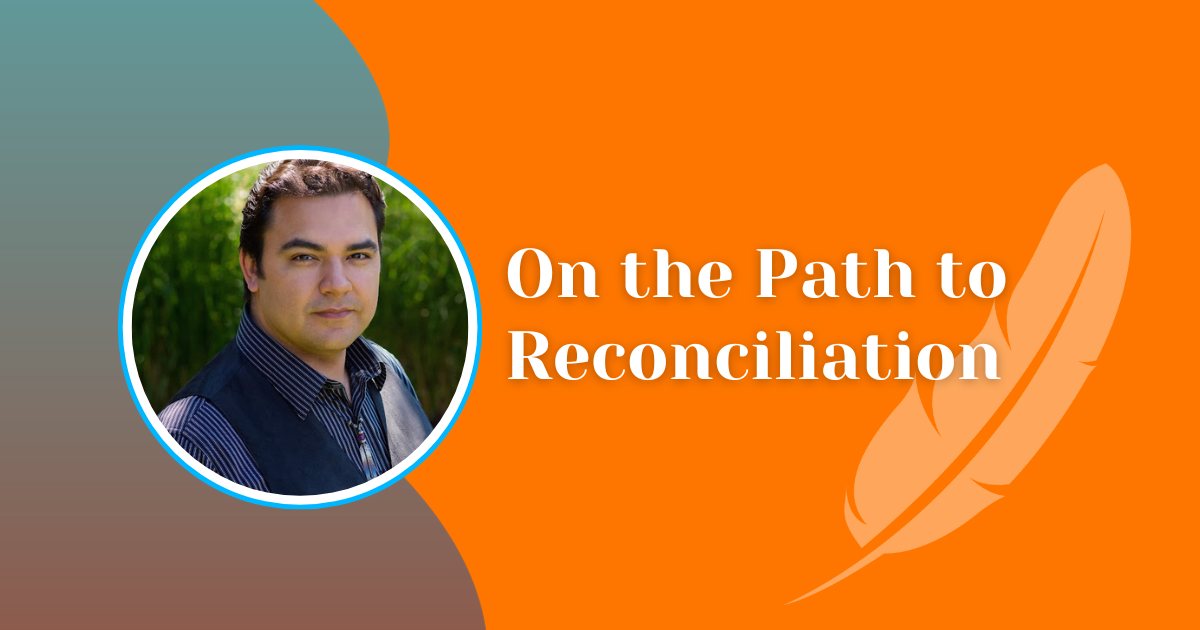On the Path to Reconciliation – National Day of Truth & Reconciliation 2023

REFLECTION BY FRANK BUSCH, DIRECTOR OF ECONOMIC DEVELOPMENT:
As Canadians collectively take a moment to observe National Day of Truth and Reconciliation ’23, it is important to look back and see how far we have come as a nation. Of the 94 Calls to Action put forth by the Truth and Reconciliation Commission in 2015, 13 have been implemented and another 32 are in progress/underway. That leaves just over half of the TRC’s recommendations still almost completely untouched to date, but it is a start.
I am already beginning to see the impact of awareness campaigns on Indigenous rights and the struggle for equality with non-Indigenous Canadians. It seems that “the cause” has gained many new allies and supporters in recent years, particularly with the revelation of the Kamloops 215 and other similar finds. It seems that more and more truth is getting told and the public is finally listening. Progress is being made.
I remember walking to school in the 1980’s and seeing some businesses had separate entrances for Indigenous and Non-Indigenous peoples, and there was no such thing as Indigenous Rights in actual practice. The ongoing efforts of nameless brave souls and unsung heroes who kept pushing the cause ahead have evidently paid off for Indigenous people, but now the real work remains. Attitudes have been changing significantly as Canadians have begun to realize that the Colonial Narrative they have been subjected to their entire lives is a falsehood. There are however, always a few hold-outs who do not want to change their views, even in the light of new information. These individuals always seem to have some reason to stick to their guns, usually because they are benefiting financially from the status quo and do not want anyone to rock the boat.
Last week a jump forward occurred, as the BC Supreme Court ruled that the mineral claims process used by the mining industry for decades is “not in compliance with the government’s duty to consult Indigenous groups.”
What a statement from the highest court in the province of BC!
It is certainly something my younger self never would have thought I would hear in my lifetime. While questions will certainly drag on regarding what this will mean for the future of BC’s economy, I am excited by the prospect of other provinces (eventually) following suit. The decision itself was a mixed bag, as while it recognized the duty to consult, Justice Alan Ross in his 148-page decision included a provision for the industry to maintain the status quo for another 18 months. The fact the court did not cancel existing mining permits “leaves our territory open” to continued exploitation, says Chief-Councillor Linda Innes of Gitxaała Nation, who brought forward the suit along with Ehattesaht Nation.
Having previously seen the impacts of the 1985 Aboriginal Justice Inquiry, the Meech Lake Accord, the Oka Crisis, the Gustafsen Lake standoff, Burnt Church, the Royal Commission on Aboriginal Peoples, and the Residential School Settlement Agreement, I have learned that real change takes time and a lot of hard work. Whether or not the next generations of Canadians are willing to do that work remains to be seen. The Honorable Murray Sinclair said it best, “We have described for you a mountain. We have shown you the path to the top. We call upon you to do the climbing.”